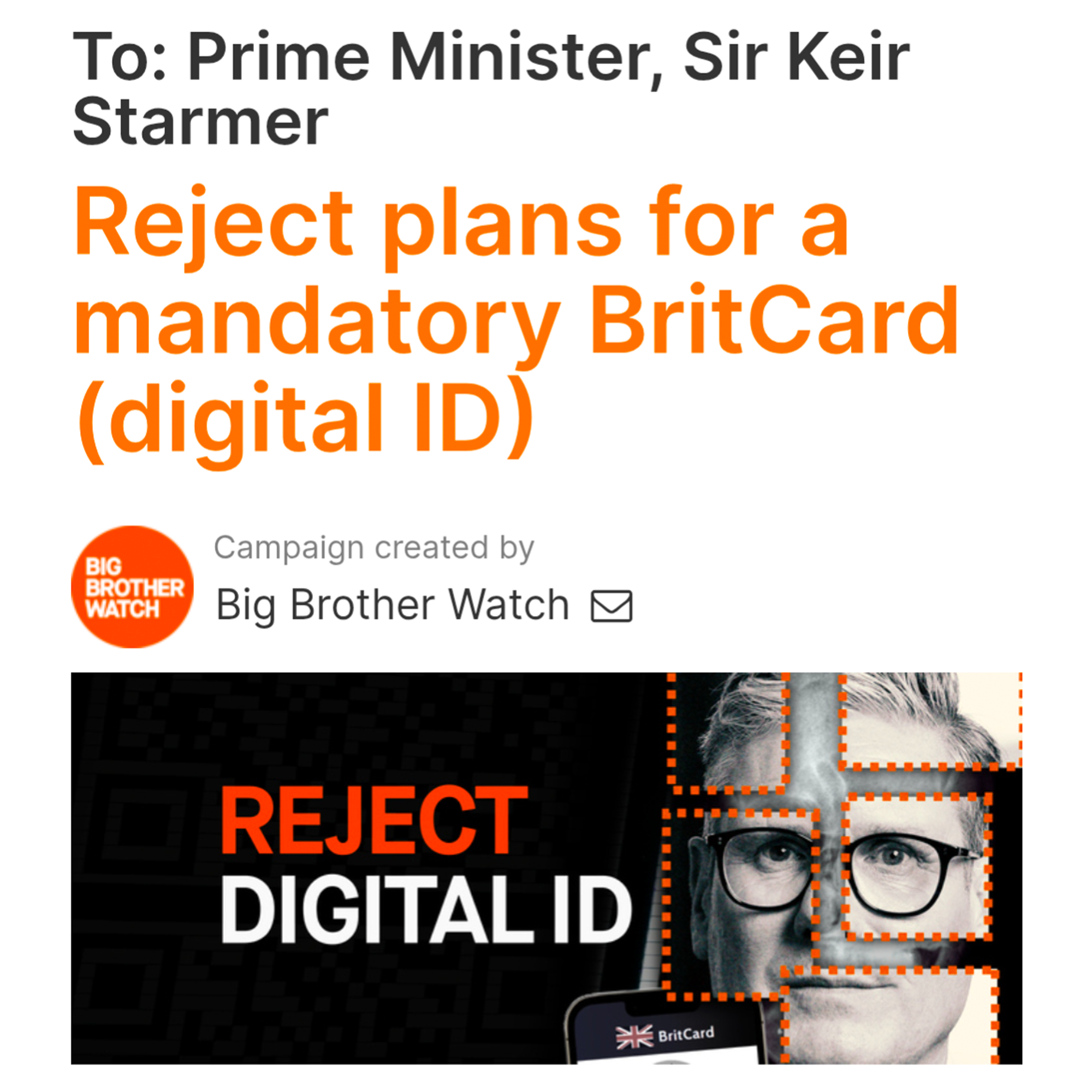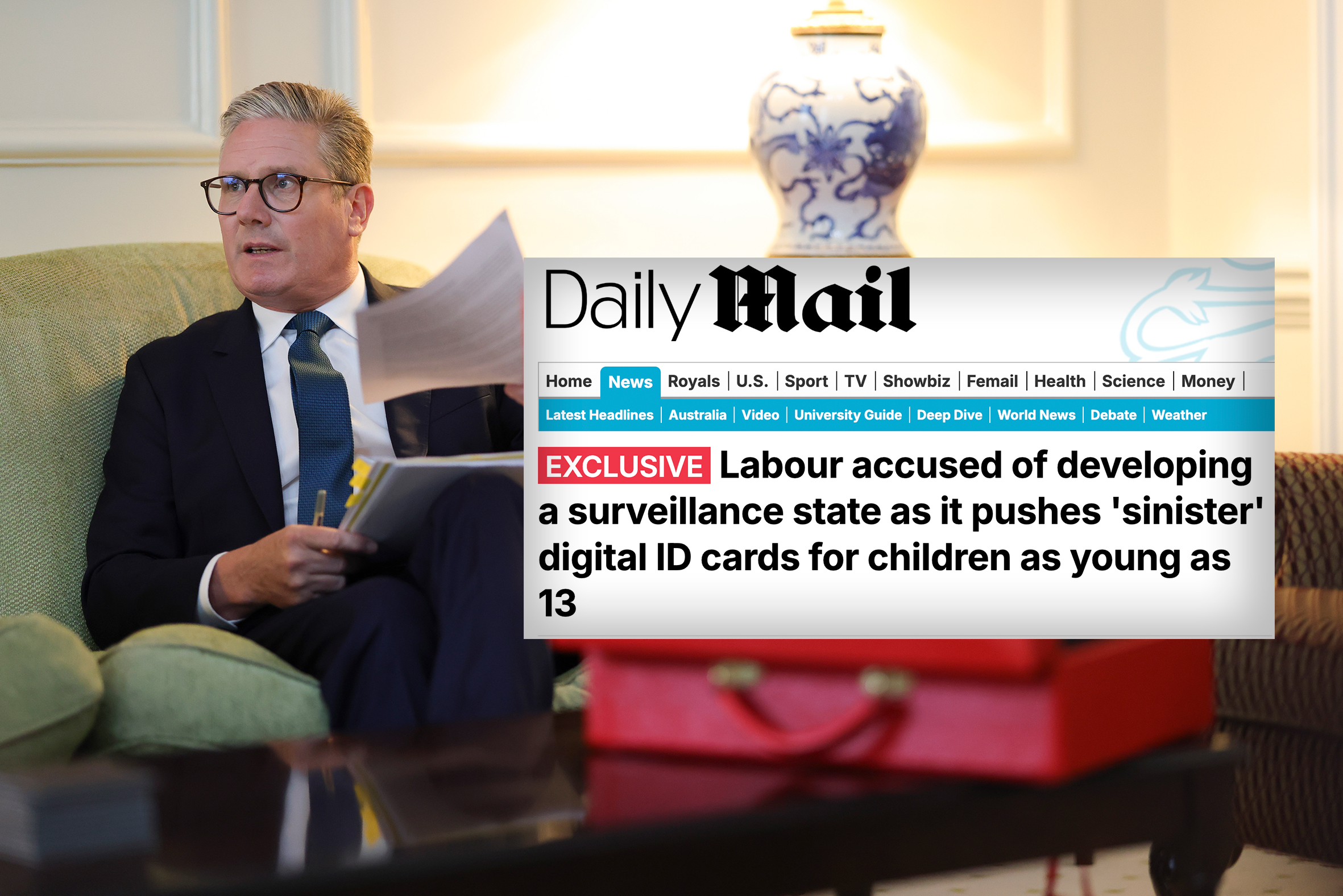The Government has announced plans for a sweeping mandatorydigital ID scheme.
In the Prime Minister’s own words: “You will not be able to work in the UK if you do not have a digital ID”.
A mandatory digital ID would change the nature of our relationship with the state and turn the UK into a “papers, please” society.
It would also be a honeypot for hackers and foreign dictators, creating huge digital security risks for our personal information.
People in marginalised, vulnerable and minority groups are more likely to have reduced access to online services (e.g. people with disabilities, low income or the elderly), particularly where digital identity is a requirement.
Politicians have tried and failed to sell digital IDs to the British public as a vital solution to a range of issues including fighting terrorism and even protecting us from Covid.
But Britain has historically rejected various forms of mandatory ID. We must reject this one too.









